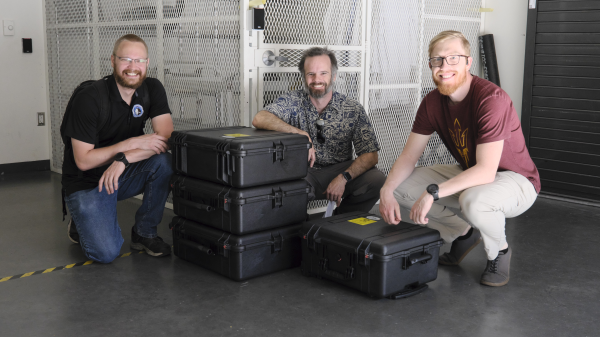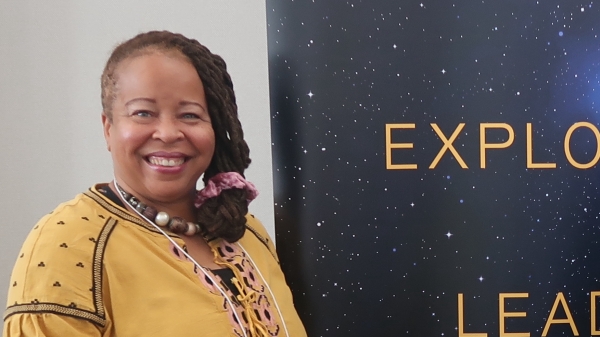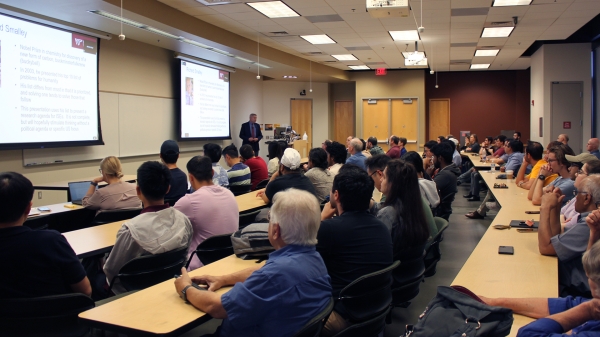ASU research finds air pollution negatively affects nearly three-fourths of plants
Native plants in this study fared worse than invasive species

Fossil fuels and industrial agriculture cause increases of nitrogen and sulfur deposition in the soil. A recent study by School of Life Sciences associate professor Heather Throop and colleagues demonstrate that this negatively impacts 70% of the nearly 350 plant species studied. Photo courtesy of Pixabay
Scientists know that air pollution affects plant populations.
Nitrogen and sulfur deposited in the soil from industrial agriculture and the burning of fossil fuels can be detrimental to plant species, but each species can be affected differently.
Arizona State University School of Life Sciences Associate Professor Heather Throop and her colleagues took a significant step toward understanding these differences in the first comprehensive study of how nitrogen and sulfur deposition affect specific plant species.
The study, published in Nature on July 1, 2019, revealed that 70% of the 348 species of plants measured were negatively impacted by either nitrogen or sulfur in the soil. However, the effects varied.
“The most significant thing for me was we realized how differently individual plant species respond to air pollution,” Throop said. “We’ve known plants are extremely sensitive to nitrogen and sulfur, but this gives us an idea in a lot of species what we can expect in those responses.”
While it may seem like a daunting task to go through a database of more than 14,000 species and find the ones that had been studied enough to determine how they are affected by the soil, Throop was one of 16 authors working on this data. The project was funded by the United States Geological Survey, which established the John Wesley Powell Center for Analysis and Synthesis to fund working groups that can solve environmental problems from existing data.
While Throop now studies desert carbon cycles, she studied effects of nitrogen on plants for her PhD and joined an Ecological Society working group of scientists who studied nitrogen or sulfur deposition. Led by postdoctoral researchers Christopher Clark from the Environmental Protection Agency and Samuel Simkin from the University of Colorado, the group scoured existing data to find areas where plant composition and nitrogen or sulfur deposition was known.
Though they found a wide range of effects, an interesting pattern emerged: Native plants tend to decline in areas with high nitrogen or high sulfur deposition while invasive or introduced plants often did better.
“This can help us understand how factors like air pollution and invasive species that are successful in an area may be coupled,” Throop said. “As we learn more about the amount of deposition species of concern can tolerate, that can help inform management decisions in areas that seem to be more highly impacted.”
The fate of plant species in response to pollution might lie in scientists' ability to understand tolerable deposition levels.
The Clean Air Act has dramatically reduced soil deposition levels and improved a lot of areas. However, levels are still much higher than the preindustrial era.
“This is something we can be very optimistic about. Environmental regulations have been very successful,” Throop said. “We know that if we reduce the fossil fuels produced by these plants, we can expect to see reduction in deposition. But if we increase that production, we know we can make the situation worse.”
More Science and technology

SPARCS mission spacecraft bus delivered to ASU for final assembly
The Arizona State University team that is building the NASA-funded Star-Planet Activity Research CubeSat, or SPARCS, cleared a…

Associate professor shares her journey from NASA to ASU
From leading space missions to designing and building spaceflight hardware and training students in space science and engineering…

Famed systems engineer inspires ASU to tackle global problems
“Providing great talent with great opportunity can make a great difference.” Such was a key part of the message delivered by G.…